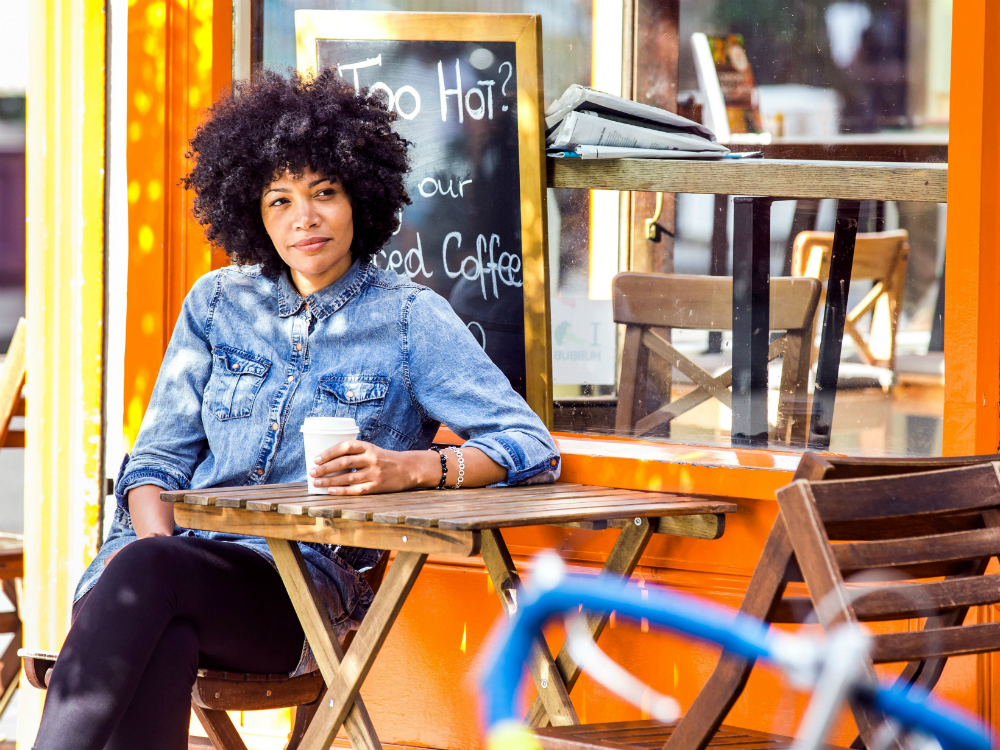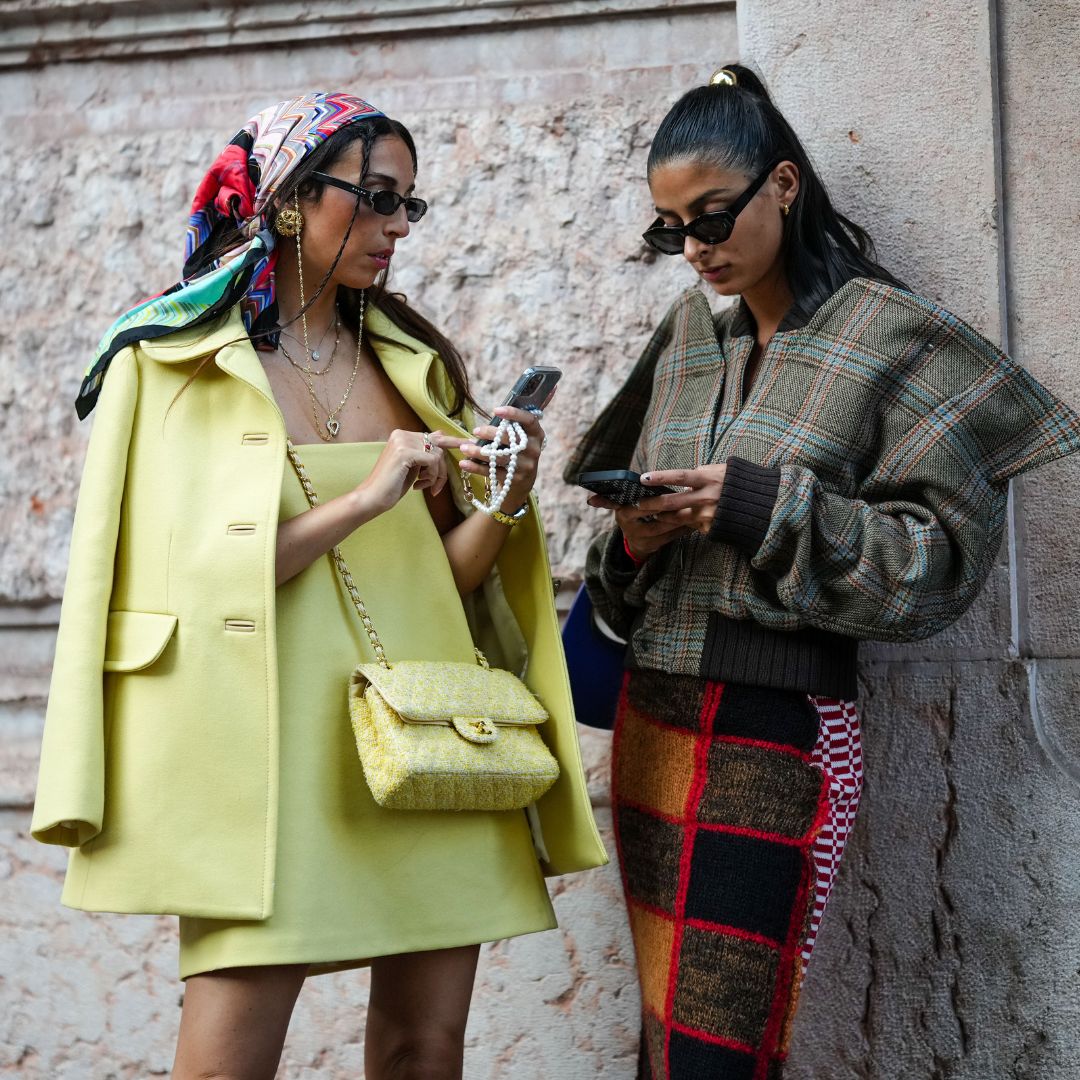Hold Up: What Is 'Misogynoir'?
The word has only existed for a couple of years, and yet it's tweeted several times a day, everyday, by accounts all over the world. So what is it?

The word has only existed for a couple of years, and yet it's tweeted several times a day, everyday, by accounts all over the world. So what is it?
A few years ago, a man messaged me on a dating app saying, 'heya'.
I didn’t see it immediately, but just a couple of hours after receiving it, I received one more from him. It read, 'stupid ignorant monkey fuck'. In the most demoralising way possible, he'd gone for one of the few things he knew about me from my concise dating profile – my blackness. And with one line, he had turned the colour of my skin into a weapon against me, as if I couldn’t see that a really great guy had given me the opportunity to interact with him and I had seemingly denied it.
In an age where feminism reigns supreme and institutional structures are being challenged on a daily basis (in real life as well as on social media), a particular niche of discrimination tends to be overlooked: misogynoir.
A term coined by Moya Bailey in 2010, a black gay feminist American academic, to describe 'the unique ways in which Black women are pathologized in popular culture', ‘Misogynoir’ covers stereotypes such as the ‘the strong black woman’ who has the capacity to withstand any deplorable treatment ingrained in her melanin, or ‘the sassy black woman’ who will click her fingers and “Mmhmm” at any given moment. It defines ‘door policies’ such as the one at DSTRKT, where it is apparently believed that it's OK to turn away women on the basis of being 'too dark'. And it describes the way in which black women can lose employment opportunities because hairstyles which protect their natural hair are not deemed 'suitable' or 'appropriate'.
I asked a number of women of colour to shed light on their experiences in the specific areas of education, dating & sex and employment – all key moments that most, if not all, bumble through during their lives – and how their black womanhood ultimately set them apart.
EDUCATION From primary school to university, the education system is generally seen as the institution that has the biggest part to play in terms of how you interact socially, as well as discovering your identity. However, this doesn’t take into account the identities that can be forced upon you.
Marie Claire Newsletter
Celebrity news, beauty, fashion advice, and fascinating features, delivered straight to your inbox!
'I was always seen as loud whilst at primary school. I could silently work for extended periods but the moment I opened my mouth, I was deemed “loud” and “disruptive”. And frankly, at times, I’m sure I could be. But when my white classmates would disrupt the class, they were “throwing a tantrum”; when I spoke up, it was typical. Even from such a young age, I was constantly trying to prove that I was more than a stereotype.'
'I attended a networking event for BAME professionals where I was involved in a conversation about the various barriers to young, black males in the UK educationally, professionally and culturally. As the youngest (and only female) member of the group, I listened intently to the contributions of the other people, namely one man in particular, about their experiences of supporting young, black males in London. This man proceeded to list the many failings of the young men and boys he supported; that they were disrespectful, rude and lacked discipline. He then proclaimed, 'And you know who I blame...?', before rounding to face me and, looking me square in the eye, declaring, 'The women.' To which I responded, facing him down, 'What women?' Unfortunately that's where the conversation ended as the event’s main speaker was introduced, but I don’t expect to forget that encounter - or the man behind it - any time soon.” DATING AND SEX One night stands, online dating, long-term relationships – for many black women, the entire dating spectrum can be described none other than a process of weeding out the potential partners and lovers who think of you as little more than a walking 'exotic' fantasy.
'This experience sticks out for me because it wasn’t a slip up. It was a direct hit and this guy wasn’t at all apologetic... We had been flirting for ages and our exchanges had always been suggestive. One evening while out with friends, we slipped away to a quieter part of the bar for a chat. As anticipated, we ended up kissing, but when we paused for a moment, he whispered 'wow, I’ve always wanted to do that'. Confused, I pulled back – 'do what?' – to which he replied, 'kiss a black girl...'. I was speechless. I immediately questioned him, explaining that we’re not some kind of novelty. He appeared surprised at my disappointment and indignation – 'I mean, those thick full lips and that crazy body, everything’s just better with black girls.' He didn’t get it; he thought it was a compliment but frankly, it’s not a compliment to be referred to as if I’d helped him unlock another level in the game of his life, like a trophy won or a notch on his filthy bed post.'
'When I was in Year Nine the most popular (and sought-after) black guy in my year yelled across the classroom at me, "You're not black; you don't even have (a) back-off". This was amidst a conversation about blackness, race and discrimination between about 10 of us, and whilst it was one of the most notable experiences I had with him of this kind, it was by no means the only one. At the time I found it deeply humiliating, insulting and upsetting. Meanwhile in the years since I have found his ascription of my legitimacy in identifying with a racial category - not to mention experiencing as well as discussing racial discrimination - to a particularly sexual physical characteristic, profoundly alarming. It feeds into, and is likely borne of, the trope of the hyper-sexualised black woman and reduces not one, but two aspects of my personhood to disgustingly crude and inaccurately myopic criteria; that is, my gender and racial identities.' EMPLOYMENT When entering the world of work, you always want to present your best self. This becomes frustrating when, in addition to that pressure, there are a number of negative stereotypes and assumptions assigned to the combined identities of your race and gender.
'I've had a hard time before because of my Afro. White people either don't want to touch on the subject or they just assume that you can't put it in a ponytail or do anything with it. In interview, I’ve had to tell them that I can put it back and every time they give a sigh of relief. As an actor, it’s a little different, and you have to deal with questions that carry the insinuation of “How black are you?” in order for them to even consider possibly changing the race of a character for you or even getting the role in general. When you see an open call or an open ethnicity post, if you don’t jump it, you’re screwed.'
Growing up as a black person means that you’re immediately at a disadvantage; it’s your job to prove that you can add something of worth to society and to work against the assumptions laid down against you - and should you fail to do so, it is stripped back to the fact that you’re black.
As eloquently stated by one of the women interviewed, 'I am opinionated but often vulnerable, flirty but not forward, thick arsed but flat-chested. I love every drop of my melanin but I’m so much more than the stereotypes of young black women that are perpetuated in popular culture – the video vixens in hip hop music videos; the written matriarch in your favourite TV sitcom; the sassy and fiery-tongued sidekick in Hollywood films.' And this is evident through the way black women have decided to tell their own narratives through publications like For Harriet (forharriet.com) and Essence Magazine (essence.com). And it is clear with strong and visible black female advocates like Amandla Stenberg, Viola Davis and Shonda Rimes.
So, when we call out “white feminism”, it's because we know we matter and the specific forms of discrimination levelled at us should be recognised and reviled too. And every time we tweet about our #BlackGirlMagic, that is us choosing self-love in a society that tells us that we lack real value.
The leading destination for fashion, beauty, shopping and finger-on-the-pulse views on the latest issues. Marie Claire's travel content helps you delight in discovering new destinations around the globe, offering a unique – and sometimes unchartered – travel experience. From new hotel openings to the destinations tipped to take over our travel calendars, this iconic name has it covered.
-
 Mytheresa is having a secret sale right now and these are the 11 cult items I'm eyeing
Mytheresa is having a secret sale right now and these are the 11 cult items I'm eyeingIncluding the designer bag that was everywhere at Milan Fashion Week
By Clementina Jackson
-
 Prince Harry reportedly extended an 'olive branch' to Kate and William on latest UK trip
Prince Harry reportedly extended an 'olive branch' to Kate and William on latest UK tripBig if true
By Iris Goldsztajn
-
 How Prime Video is protecting Blake Lively amid her new movie promo
How Prime Video is protecting Blake Lively amid her new movie promoAn understandable move
By Iris Goldsztajn